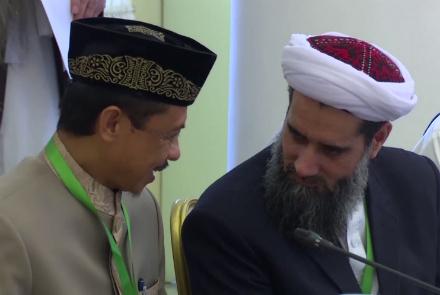Lawmakers in the Wolesi Jirga, the Lower House of Parliament, on Saturday expressed mixed feelings about the religious scholars meeting in Indonesia, with some of them saying that it will help end the war and carry on the peace process; however, others felt differently.
The MPs said the Taliban are fighting under the name of religion and that religious scholars’ comments will help improve the situation.
“Suicide attacks and bombings must be declared forbidden,” said Sayed Ali Kazemi, an MP from Kabul.
Religious scholars attending the meeting in Indonesia were expected to issue a fatwa against the war in Afghanistan but they only issued a declaration which said war and violence have no place in Islam and that Islam is the religion of peace and true believers should put into practice what this religion has said.
The religious scholars asked the Taliban to join the peace process and said their war is not legitimate.
“Such symbolic and luxurious gatherings and advice cannot help us to achieve peace unless serious steps are taken against the Taliban and Daesh and other terrorist groups,” Bashir Ahmad Tahyanj, an MP, said.
“If we expect that these meetings will impact the war in Afghanistan, we have committed a mistake,” said Ali Alizada, an MP.
This comes after religious scholars from Afghanistan, Indonesia and Pakistan on Friday issued a declaration on the war and peace in Afghanistan in which they supported efforts for peace in Afghanistan and opposed 'terrorism and violent extremism'.
“We the Ulema, therefore appreciate and support the offer of the Government of Islamic Republic of Afghanistan as announced by President Ashraf Ghani during the Kabul Peace Process, February 2018 for peace and reconciliation in Afghanistan,” read the declaration.
“We reaffirm that violence and terrorism cannot and should not be associated with any religion, nationality, civilization, or ethnic group, as violent extremism and terrorism in all its forms and manifestations including violence against civilians and suicide attacks, are against the holy principles of Islam,” read the statement.
The Afghanistan High Peace Council (HPC) says that from Afghanistan 20 religious have attended the meeting and they hope it will have a constructive result for Afghan peace process.


